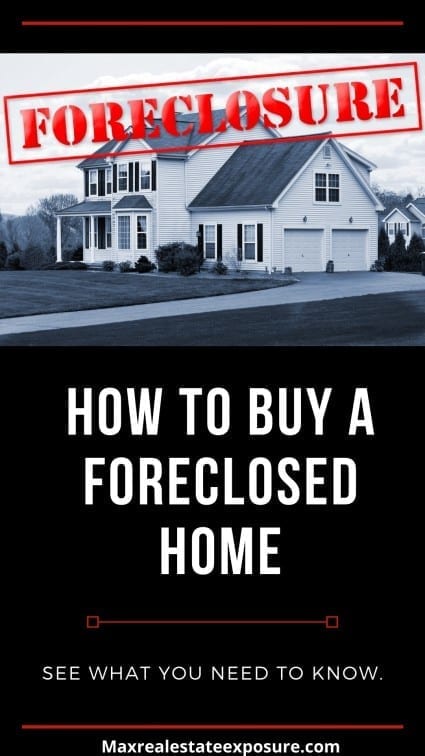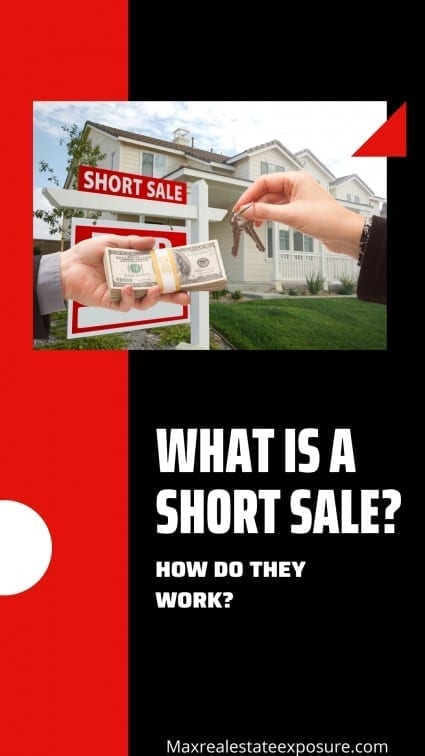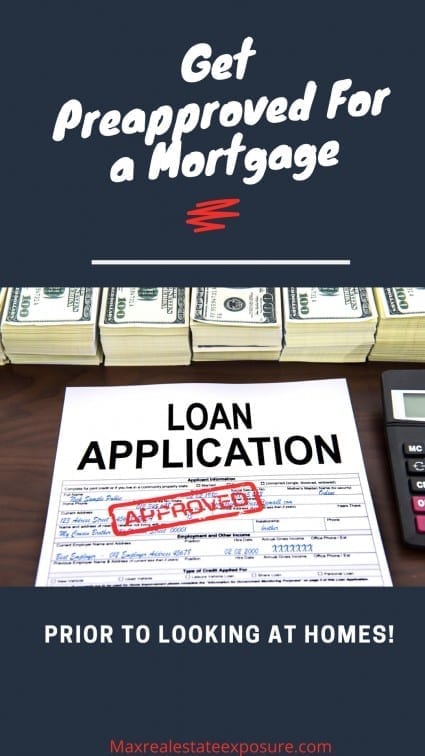How to Buy a Home on Foreclosure
 Over the years of working as a real estate agent, many buyers have asked me how to buy a foreclosure home. They essentially are asking about the procedures for buying foreclosed homes.
Over the years of working as a real estate agent, many buyers have asked me how to buy a foreclosure home. They essentially are asking about the procedures for buying foreclosed homes.
The appeal is that they’ve heard foreclosures are the bargain of the century.
If you are considering buying a foreclosed home, doing your homework before making an offer on a property and putting up your earnest money is essential.
Foreclosures can undoubtedly be a great deal – but they are not always as much of a bargain as people assume they will be.
Buying a foreclosure also requires a slightly different process than a traditional home purchase. There are certainly pros and cons to buying a foreclosed property.
In the end, buying a foreclosed home can be very rewarding, but only in specific circumstances.
Let’s examine the foreclosure process to determine if it’s right for you. If you can get a good deal, it just might be!
Buying a Foreclosure Home – What You Need to Know
What Exactly is a Foreclosure?
Most homebuyers take out mortgages from lenders to purchase their homes. Some of those buyers are unable to keep up with their mortgage payments.
If they get far enough behind, the bank will take back the home or foreclose on the homeowner. The bank doesn’t want to own the house permanently, though.
The mortgage lender wants to get as much money as possible for foreclosed homes – as quickly as they can – to move on and return to lending.
The fact that the lender is a highly motivated seller who wants to sell fast and is usually willing to negotiate works to your advantage. When buying foreclosed homes, you can often get a property for less than its market value.
You can also usually expect the lender to be willing to work with you on the price, which may not be as likely with a traditional house.
Unlike the average homeowner, the bank has no personal attachment to the property. It is interested in selling. It is well aware of market value and is often so motivated to sell that it will liquidate a foreclosure for less – sometimes significantly less – than that market value.
Foreclosure listings can usually be searched in multiple listing services nationwide.
How Do Home Foreclosures Work?
Foreclosed homes have a few stages that are essential to understand.
- Defaulting on payments and getting a notice of default. Default on a mortgage occurs when a borrower has missed one more loan payment. After months of defaulting, the mortgage lender can start the foreclosure process. Lenders typically will send a default notice after payments have been missed for 90 days. It’s not uncommon for lenders to reach out and ask why you’ve forgotten your payments.
- Initiating a notice of trustee’s sale. At the start of the home foreclosure process, the lender must record the intent to foreclose with local news sources.
- A Trustee’s sale: Mortgage lenders will attempt to sell the property at a public real estate auction.
- REO properties: When properties don’t sell at auction, they become REOs which stands for real estate-owned. Banks will now get the home sold, typically by listing the property with a real estate agent.
Why Buy a Foreclosed Home?
If you wonder why you would buy a foreclosed home, solid value is the most common reason. A lower price is certainly not out of the question with an REO property.
Often, foreclosure sales can also present the opportunity to create sweat equity in the property. If the foreclosure isn’t in the best shape, a buyer can fix it how they want. Some properties need extensive repairs, which can lead to an even lower purchase price.
If you’re handy, that’s a bonus because you can make the necessary repairs.
It is also possible a foreclosure is just another house that offers the perfect location, the neighborhood you would like to be in, or the school district you are looking for. Who knows, maybe the home is in good shape?
Foreclosed homes don’t necessarily have to be the best bargain in town to be a worthy purchase. A low price could be a secondary concern if you find the home of your dreams.
How to Find Foreclosed Homes?
While you can go to the multiple listing service (MLS) to look for any type of home, including foreclosures, other methods exist. One of the best ways of finding foreclosure homes is to do an online search.
I would head to Google and do one of the following searches: foreclosures near me, foreclosure near me, or foreclosed homes for sale near me. By doing these kinds of searches, Google will pick up on any advertisements from lenders or some of the major real estate search portals.
Foreclosure houses will be much easier to find when you monitor new properties coming up for sale. With foreclosure homes, you must keep your pulse on the real estate market as they typically move quickly.
Another excellent means of keeping your pulse on the foreclosure market is by checking the local newspapers. These types of homes are often advertised as part of the legal process. If you look carefully, you’re bound to see an advertisement for a real estate auction in the local market.
Besides working with a buyer’s agent, keeping close tabs on public records is the best way.
Understanding The Three Types of Foreclosures
Did you know there are three types of foreclosures? There is what’s known as a pre-foreclosure or short sale, an auction foreclosure, and a bank-owned foreclosure.
You could call these before, during, and after foreclosure takes place. Let’s break down each of these foreclosure scenarios. They are all valid methods of how to buy a foreclosed home.
Pre-Foreclosure/Short Sale in Foreclosure
 A house in foreclosure is often called a short sale or pre-foreclosure home.
A house in foreclosure is often called a short sale or pre-foreclosure home.
The first stage of a house on foreclosure is when a homeowner falls behind on their mortgage payments or stops paying their home loan altogether.
In all mortgage agreements, there is what’s called a due-on-sale clause. The clause requires the mortgage to be paid back in full upon selling the property or conveyancing to another party.
When homeowners do not make mortgage payments, the lender has the right to foreclose.
Sometimes, lenders will allow owners to participate in a short sale. A short sale allows the owner to sell their property for less than what’s left on the mortgage.
Typically, there needs to be some hardship on the owner’s part for the mortgage holder to grant a short sale. Lenders often require what’s known as a hardship letter.
The mortgage holder in a short sale is still looking to obtain as close to market value as possible. In other words, they won’t accept offers that are significantly under the appraised value.
Lenders can also put conditions into the short sale agreement that the owner will pay back a portion of the shortfall.
Payback can come as a cash contribution at closing or a promissory note. Paying back pennies on the dollar is often far better than going through a foreclosure.
The ultimate goal, however, for the owner in all short sales is complete debt cancellation. Depending on the circumstances, the mortgage lender may or may not agree to this.
Downsides to This Stage of Foreclosure
The downside for a buyer purchasing a pre-foreclosure/short sale is the time to complete the transaction. Short sales really should be called “long sales.”
Many short sales take double or triple the time of your typical closing period. If there is more than one mortgage holder on the property, the time to close can be even longer. It would be best if you always planned on closing a long time away with a short sale.
There is also no guarantee the mortgage holder will accept a buyer’s offer. It should be noted the lender will have the property appraised to determine its value. A bid will be rejected if it does not fall somewhere within percentage points of the fair market value.
If an agreement cannot be reached, foreclosure proceedings will continue forward.
When real estate markets and the economy are soft, you will tend to see more houses in foreclosure. Foreclosed homes become more prevalent because of many things, including job loss, loss of wages, or owners walking away because the property’s value is less than what they owe the lender.
Buying Foreclosure Homes at Auction
Another way to buy foreclosed homes is to attend a foreclosure auction. At a real estate auction, foreclosures are sold to the highest bidder.
Buying a home at auction is when foreclosure takes place. The lender uses an auction to liquidate the property. There are two types of auctions – a live auction and an online auction. The reference for buying foreclosures gives in-depth details on the nuances of each type.
What’s essential for a buyer purchasing a foreclosure at auction to know is you’re buying the property in as-is condition. Quite often, buyers cannot tour the inside of the property. Because of this, purchasing a foreclosure at auction comes with significant risks. Potential buyers need to know they could be buying a lemon!
Additionally, there could be liens on the property that you will be responsible for paying. You must have an attorney do a title search before buying a home at auction.
Getting stuck with court judgments, unpaid real estate taxes, title defects, or liens are all problems you’ll want to avoid. You’ll want to obtain title insurance to protect yourself moving forward.
Foreclosure auctions are not for the timid at heart. You should also be aware of a right of redemption period where the owner could take back the property. Right of redemption differs from state to state, so you must check how it applies in your local market.
Buying a Bank-Owned Foreclosure Home
The last way to buy a foreclosed home is after the bank has taken possession. This foreclosure stage is the simplest for a buyer to purchase.
Sometimes bank-owned homes are called real estate-owned, REO homes, or REO properties. It is possible you could be buying a home directly from Freddie Mac or Fannie Mae, which are both government agencies.
Purchasing a bank-owned home is the least risky for dealing with title problems, liens, etc.
The bank will have taken possession of the property in a completed foreclosure. They also will have solved any title issues and paid off any liens.
The bank will provide a clear and marketable title at closing with REO Homes. Buying a bank-owned home, however, does not mean it comes without any risks. You will want a thorough home inspection to avoid purchasing the former owner’s problems.
Often, these properties are fixer-upper homes where the previous owner has failed to maintain the property. Bank-owned properties are generally more appealing than other foreclosures because the lender has almost always cleared up title flaws.
Another perk of these foreclosed homes is that they can be closed quickly. In most bank-owned foreclosures, the bank will require a quick close. The closing process will be no different than a traditional house purchase.
Pros and Cons of Buying a Foreclosure
Let’s review the pros and cons of buying foreclosed homes.
 Without a doubt, there are advantages and disadvantages to buying a foreclosure property. On the upside, you may be scoring a great deal.
Without a doubt, there are advantages and disadvantages to buying a foreclosure property. On the upside, you may be scoring a great deal.
Don’t, however, automatically assume that is the case. One of the mistakes real estate investors make, along with the general public, is purchasing foreclosures at or above market value.
The goal of buying a foreclosure should be to purchase at least slightly under the market value.
It’s possible to achieve this in many circumstances, as the bank wants to get the asset off its books.
Usually, you’re able to close very quickly with a bank-owned foreclosure. No underlying personal timing issues are found in the standard homeowner transaction.
You will also be able to do a home inspection. However, don’t expect the lender to make repairs – they rarely ever do.
With a bank-owned foreclosure, the house will also be vacant, making it easier to see any deficiencies.
Traditionally bank-owned homes are listed with real estate agents who must follow disclosure laws in their state for any defects they discover.
What Are The Cons of Buying a Foreclosed Home?
When you buy a bank-owned foreclosure, you purchase the property with all its flaws.
- Banks seldom make repairs.
- You will be purchasing the house as-is.
- There could be squatters in the home that could be troublesome to remove.
- Some lenders will require you to sign additional paperwork outside the norm.
Lastly, the bank has never lived in the property and, therefore, won’t have any intimate details that otherwise might have to be disclosed.
Buying a foreclosure home ramps up the importance of thorough house-buying due diligence. Numerous people have regretted their decision to buy a foreclosed house. Foreclosure houses often come with warts that may not be detected until you live there.
Buying a Foreclosure in 5 Easy Steps
Let’s take a look at the steps to buy a foreclosed home.
1. Find a Real Estate Agent Who Knows How to Buy a Home in Foreclosure.
With so many real estate agents, looking for one who meets your needs is crucial. Some agents are more experienced with foreclosures than others, making them a better choice when attempting to purchase a home from a lender.
Having an exceptional buyer’s agent when buying distressed properties will be a good idea. Someone who has some experience with a foreclosure purchase will be preferred.
There are certification programs that real estate agents can go through to learn more about buying foreclosures and certifications that you can look for when choosing an agent.
These programs include the Certified Distressed Property Expert (CDPE) and the Short Sales and Foreclosure Resource (SFR) programs.
Keep in mind that experience is everything when buying specialty real estate. You’ll want to feel confident your agent knows their way around the foreclosure buying process. Buying houses in foreclosure is not something that should be taken for granted. It would be best to stay away from rookie agents.
Don’t Go to The Listing Agent With Foreclosed Homes
Whatever you do, don’t use the real estate agent that works for the lender to purchase a foreclosure! The listing agent represents the seller, NOT you. Going directly to the listing agent could set you up for dual agency, whereby the agent becomes a neutral party.
You cannot get any of the typical buying advice you would expect from a buyer’s agent in dual agency, including what to offer. By having a double agent, you have NO representation! Many real estate agents practice dual agency and will try to convince you there are no issues.
Only one person benefits from dual agency – the real estate agent. Don’t be suckered.
Once you choose the right agent, you can decide what types of foreclosed homes you are interested in looking at and let the agent guide you through the process.
Just remember, investors often snap up foreclosures quickly, so you must be ready to move fast when your agent finds a potential deal.
2. Get Your Finances in Order, Including Getting Preapproved For a Loan.
 Because buying a foreclosed home can move so fast, you need to have your financial situation to make a deal as soon as possible.
Because buying a foreclosed home can move so fast, you need to have your financial situation to make a deal as soon as possible.
That means getting pre-approved for a mortgage loan before you start looking for foreclosure homes to purchase. That is unless you can pay cash for a property. But if you are like most buyers, you will need a loan to buy a home.
It will be imperative to get preapproved for a mortgage. It will be mandatory.
Remember, a mortgage preapproval letter is different from a prequalification one. It is relatively easy to get prequalified, but getting preapproved is much more involved.
You must provide the lender with numerous documents before being approved for a mortgage.
A preapproval letter is more valuable because it is more detailed – it tells you how much money you can borrow. It guarantees you can get that money to buy a home if your financial situation doesn’t change before purchase.
Sellers like to see buyers with preapproval letters because they know they are ready to purchase.
The bank or mortgage broker will have checked your credit score, monthly income, and employment. It is essential to know what type of financing you will use, whether a conventional or FHA loan.
It is important to note that the Federal Housing Administration does not allow a property owner to use FHA financing without moving into the house within 60 days of signing loan docs.
You also need to live in the home for most of the year.
3. Let Your Agent Compare The Prices of Other Similar Sales Before Making an Offer.
One of the significant advantages of working with an experienced real estate agent is that you can make more knowledgeable offers for properties.
It is vital to make an excellent offer so that you are taken seriously – and to avoid offering too much for a property when you don’t have to.
Your agent can help you determine the right offer by running ‘comps’ or comparables for similar homes in the area. Don’t just automatically assume that foreclosed homes are priced correctly. The asking price may be off.
Real estate agents can run a comparative market analysis to see all the homes sold in the area in a specific time frame.
They can include all the information relative to the home you are making an offer to ensure that the prices you look at are for properties comparable to those you want to buy.
That way, you can make an offer that is likely to appeal to the lender and is not too high.
4. Make Sure Your Offer is Competitive on a Foreclosure Home.
Depending on where you are buying, foreclosures may sell quickly and reasonably. It would help if you adapted to the market conditions as a buyer, so you may need to offer a higher price than you think to compete with other foreclosure buyers.
Your agent can give you an idea of what offer is the right market price. You want to make a solid offer to land the sale – if you offer too little, the bank might not take you seriously.
It is worth remembering that foreclosures are often priced competitively from the outset. Banks are not sentimental about foreclosed homes. They want to sell them as fast as possible.
You could lose out on the purchase if you offer too much lower than the initial price. Work with your agent to decide which price makes the most sense based on current market conditions.
5. Know That Foreclosure Homes Are Offered ‘As Is’ And Act Accordingly.
 Foreclosures can be great deals, but they can also be nightmares if you are not careful. The bank is trying to sell the property as it is.
Foreclosures can be great deals, but they can also be nightmares if you are not careful. The bank is trying to sell the property as it is.
Unlike a regular homeowner, the bank is not usually willing to make repairs or other property fixes before selling it.
When buying foreclosed homes, you could wind up with a disaster if you are not careful before you buy them.
Always get a foreclosure inspection by a home inspector before you hand over your money.
You’ll want to know that the home has no significant issues that will be prohibitively expensive after your purchase. The cost of repairs could be much more than you bargained for.
Regardless, you do not have to get a home inspection, but your agent will advise you to. Remember, you are not buying a new home.
Being sure that things like the foundation, electrical system, plumbing, and roof are in good enough shape to justify the purchase is critical. Otherwise, you could spend more making the home habitable than you would have from just buying from a regular seller.
How to Find Foreclosure Homes Before They Hit The Market?
Many prospective home buyers ask, “Is there a way to find out about foreclosure properties before they hit the market?” Well, there is a way to potentially increase your odds of finding houses in foreclosure.
A company called Realty Trac publishes data on homeowners who miss mortgage payments.
In most circumstances, these people have run into a short-term financial crunch. They miss their mortgage payment but eventually get caught up.
It is worth checking, as a few will slip through the cracks or are excellent candidates to short-sell their homes.
Here is a link to their pre-foreclosure property search tool. You will be able to search by state to find potential foreclosure properties.
You will see these properties on Zillow like they are listed for sale, which is very misleading. I always get calls from buyers asking about these pre-foreclosure homes, many of which never actually make it to the market.
While the site showcases houses in foreclosure, the vast majority of the time, these properties never make it to the market.
For homes that have already been foreclosed and are bank-owned, Realtor.com has a helpful foreclosure search tool for them. Remember, you can also do an online search for foreclosure homes near me and are bound to come up with some results.
Final Thoughts on Buying a Foreclosed Home
Hopefully, you now better understand how to buy a foreclosed home or short sale. Remember to enter these kinds of real estate transactions with open eyes.
It is advisable to have a team of professionals to consult with when essential questions come up. Always do any necessary due diligence when purchasing a foreclosed home.
While purchasing bank-owned property can be appealing, it doesn’t always come without risks. Hopefully, you now understand how to buy a foreclosure and all the risks involved.
About the author: Bill Gassett, a nationally recognized leader in his field, provided the above Real Estate information on how to buy a home in foreclosure. Bill can be reached via email at billgassett@remaxexec.com or by phone at 508-625-0191. Bill has helped people move in and out of Metrowest towns for 37+ years.
Are you thinking of selling your home? I am passionate about Real Estate and love sharing my marketing expertise!
I service Real Estate Sales in the following Metrowest MA towns: Ashland, Bellingham, Douglas, Framingham, Franklin, Grafton, Holliston, Hopkinton, Hopedale, Medway, Mendon, Milford, Millbury, Millville, Natick, Northborough, Northbridge, Shrewsbury, Southborough, Sutton, Wayland, Westborough, Whitinsville, Worcester, Upton, and Uxbridge MA.

